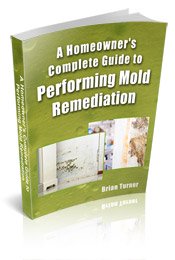Find a Mold Specialist Now
Click or Call, Toll-Free 24/7
Mold Health Effects
Although lasting mold health effects can be the result of the presence of many different sorts of household molds, the health issues from mold of the black variety are certainly among the most serious. Black mold, also commonly known as “toxic mold” tends to grow on dampened household materials that contain high amounts of cellulose, such as paper, drywall, or wood.
As it decomposes the material in order to nourish itself, it releases deadly toxins into the air. The inhalation of these toxins results in the commonly known mold health effects associated with this particular organism. Although the health issues from mold that will actually develop within an individual because of this process can vary, it’s important to note that they can be incredibly serious.
What are the mold health effects I am at risk for if exposed?

The most common effects of black mold exposure will be allergy-like symptoms similar in nature to severe hay fever. The mucous membranes of your respiratory passages will become inflamed and irritated. You may suffer from a cough, runny nose, and irritated eyes. In the event the infestation is more concentrated or you are a person who is already sensitive to respiratory ailments, you may also experience headaches, dizziness, or pulmonary irritation that becomes so severe, bleeding is actually caused. Prolonged exposure can also result in more serious respiratory health issues from mold, such as lung or throat cancer.
Black mold can also attack your central nervous system and cause even more serious consequences. It can result in memory loss and lack of concentration. You may also experience headaches, nausea, unexplained aches or pains, chronic fatigue, and chronic fevers. These are all very serious signs that black mold is present and affecting your nervous system, a critical situation. If unaddressed, permanent brain or nerve damage may be the result.
Many people never regain their full memory capacity or ability to concentrate and stay keen after being exposed to black mold over time, gravely affecting their quality of life. Others even go on to develop various sorts of cancers and other serious ailments. Black mold doesn’t stop at the respiratory and nervous systems either. Your liver, kidneys, or other organs can start to fail or develop issues as well.
You can watch this video to see one family's story of finding mold in their home.
Who is most at risk?
Although no one is safe from the mold health effects, there are certain individuals who are more likely to suffer adverse effects than others. Those with existing respiratory issues or severe allergies will be more sensitive than others, as will people who suffer from chronically compromised immune systems – people with lupus or AIDs, for instance. Also especially vulnerable to health issues from mold are the elderly, infants and young children. (In fact, it’s not uncommon for people in these groups to die from black mold poisoning.) Pregnant women should be aware that black mold increases the risk of fetal birth defects and miscarriage as well.
What do I do if I think I may have a black mold issue in my home?
If you have reason to believe that black mold may be present in your house, then you should do a thorough check for the telltale signs of its presence. Check especially thoroughly in and around areas in your home that may have been exposed to moisture lately (via a plumbing or water seepage problem, for instance) or in areas where the humidity level of the air tends to be high. If you think you or your family members are showing signs of the mold health effects, make an appointment to see a doctor and express your concerns.
Most importantly, if you suspect mold’s presence, we recommend you enlist the services of a qualified mold specialist who can help you deal with the problem to avoid experiencing further health issues from mold. Your initial consultation and assessment is free. Plus, should you decide you’d rather deal with the issues yourself, the specialist can advise you on how to do so safely and effectively.
Finding a qualified mold removal specialist in your area is very simple. Just follow this link to get a list of licensed and experienced local Mold Removal Specialists that are ready to help you.
You can follow this link to learn more about the health effects of indoor mold.
Return From Mold Health Effects To Our Symptoms Of Toxic Mold Exposure Page
Black Mold Health Symptoms Home Page





